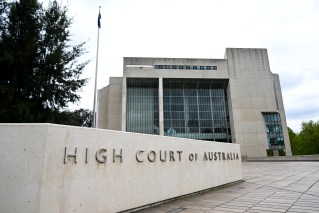Electronic surveillance set for overhaul

The government will accept nearly all of the recommendations in the report.
Australia’s electronic surveillance laws are set for an overhaul after the Morrison government agreed to the recommendations of a landmark intelligence report.
Former intelligence chief Dennis Richardson’s 1300-page report found the existing framework was unnecessarily complex and outpaced by technology.
Attorney-General Christian Porter expected the surveillance reforms to take up to 18 months to draft.
“That in itself would be perhaps the biggest national security legislative project in recent history,” he said in Canberra on Friday.
“It would require the repeal and rewriting of nearly 1000 pages of existing law on warrants, interception and telecommunications.”
The report found law enforcement and intelligence were being challenged by criminals going under the radar through new technologies.
It referenced the dark web, encryption, cryptocurrency, messaging apps, social media and multiple data storage platforms.
Mr Porter said despite the scale and pace of technological change, the old regime had been durable over time.
“The conclusion that Dennis Richardson reaches is that it is no longer fit for purpose in the digital world of internet smart phones and end-to-end encryption,” he said.
Mr Porter said the report found key principles underpinning Australia’s intelligence and security legislation were sound.
The government also agreed to implement a new framework for ASIO’s offshore activities to strengthen ministerial accountability.
More oversight will be included in intelligence legislation and emergency warrants streamlined.
But Richardson report recommended against putting a “double lock” system for additional approvals across the warrant system.
An independent panel will be established to provide assistance to the inspector-general of intelligence and security.
The government has agreed to 186 of the 190 unclassified recommendations.
Mr Richardson also produced a classified version of the report.
Home Affairs Minister Peter Dutton, who is responsible for domestic security agencies, said legislated powers must keep up with new technologies in order to keep people safe.
“The threat of violent extremists is still with us. These people are still plotting and planning to kill Australians and we need to make sure that legislation we have in place is fit for purpose,” he said.
-AAP







